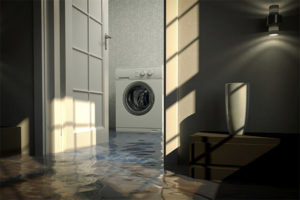Water Damage Cleanup Caused By Washing Machines
 One appliance that has made our lives much easier is the washing machine. Since many homes in Monroe have water hookups for washing machines, it is important to know how to minimize the risk of water damage from a malfunctioning appliance. Washing machines use between 20 to 80 gallons of water for each load, so a water cleanup from a leaking machine can be quite extensive. Here are some things you should do that could save your home from catastrophic water damage.
One appliance that has made our lives much easier is the washing machine. Since many homes in Monroe have water hookups for washing machines, it is important to know how to minimize the risk of water damage from a malfunctioning appliance. Washing machines use between 20 to 80 gallons of water for each load, so a water cleanup from a leaking machine can be quite extensive. Here are some things you should do that could save your home from catastrophic water damage.
Water Damage Cleanup in Monroe
- Flooding from a washing machine is easy to catch, but when it’s a slow and steady leak, it can go unnoticed for quite some time. This can cause just as much damage if not more in the long run. One of the easiest things you can do to catch leaks and prevent water damage is to put a tray underneath your washing machine. Not only will the tray catch water, but you will notice leaks sooner by checking the tray after running a cycle. Washer trays are inexpensive and designed to diagnose and defend against water damage, but are often underutilized. Install a tray under your washer today to help reduce your need for a water damage cleanup from a leaky machine.
- Make sure that the water valves are easy to reach and can be turned off and on quickly. Most water hook-ups for washing machines are installed with a dual lever shutoff. This means there is one for the cold water supply and one for the hot water supply. Be sure that both work. If you want to be extra cautious, you should consider installing a single lever water shut-off valve to your washer so that when water is flooding from your machine, you only need to turn off one valve instead of two to stop the flow. Every second counts in mitigating water damage and preventing water from flooding your laundry room. Having levers that won’t turn off or even having to turn off two instead of one could cost you valuable time.
- Speaking of water valves, it’s a good practice to turn the water supply line off completely when the washing machine is not being used. Leaks from the water supply lines themselves can be happening even if the washer is not being used because water is still in those lines. When you turn the valves off in between wash cycles, it stops water from flowing and sitting in the hoses where it is more prone to leak out over time.
- Inspect water supply hoses regularly for any cracks or kinks and replace old hoses with stainless steel braided hoses. These kinds are much less likely to burst, kink, or crack.
- Follow the manufacturer’s guidelines for proper usage and routine maintenance in order to extend the life of your washing machine and reduce major malfunctions. Be sure to use the right amount of detergent and do not overfill the tub – or water damage could be the result.
Hopefully, these tips will help keep your washing machine functioning smoothly and keep you from needing a water damage cleanup. If you do find yourself in need of a water damage cleanup, whether from your washing machine or any other source, call the water damage cleanup experts at Restoration 1 of Greater Charlotte.
 One appliance that has made our lives much easier is the washing machine. Since many homes in Monroe have water hookups for washing machines, it is important to know how to minimize the risk of water damage from a malfunctioning appliance. Washing machines use between 20 to 80 gallons of water for each load, so a water cleanup from a leaking machine can be quite extensive. Here are some things you should do that could save your home from catastrophic water damage.
One appliance that has made our lives much easier is the washing machine. Since many homes in Monroe have water hookups for washing machines, it is important to know how to minimize the risk of water damage from a malfunctioning appliance. Washing machines use between 20 to 80 gallons of water for each load, so a water cleanup from a leaking machine can be quite extensive. Here are some things you should do that could save your home from catastrophic water damage.